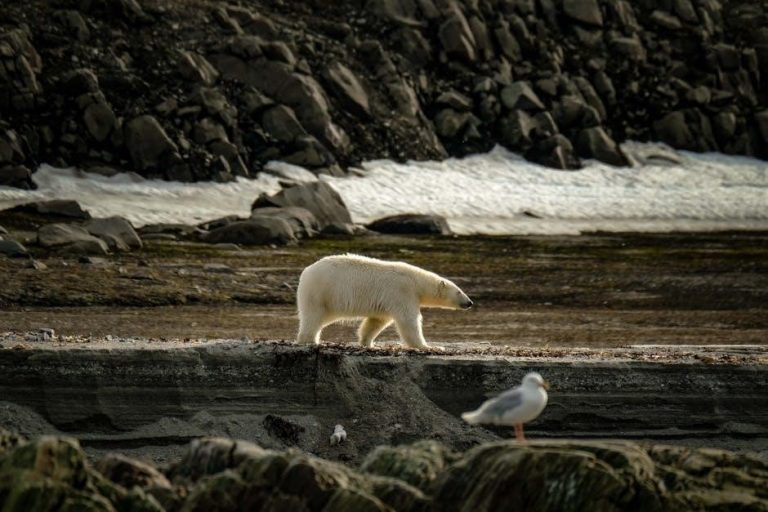
North Carolina offers thriving black bear populations and diverse habitats, making it a prime destination for hunters. Guides play a crucial role in navigating terrain and regulations, ensuring successful and ethical hunts while promoting sustainable wildlife management.
1.1 Overview of North Carolina’s Bear Population
North Carolina’s black bear population is thriving, with significant growth observed in recent years. The eastern counties, particularly Dare and Hyde, host robust bear numbers due to ample habitat and food sources. Guides emphasize sustainable hunting practices, ensuring the population remains healthy while offering hunters opportunities to engage with this abundant wildlife resource effectively.
1.2 Importance of Guides in Bear Hunting
Guides are essential for a successful bear hunting experience in North Carolina. They provide local knowledge of terrain, bear behavior, and hunting regulations, increasing the likelihood of a fruitful hunt. Guides also ensure ethical practices, promoting sustainable wildlife management and offering logistical support, making them indispensable for both novice and experienced hunters seeking to maximize their hunting adventure in the state.
Best Counties for Bear Hunting in North Carolina
Dare and Hyde Counties are prime locations for bear hunting due to their dense forests and swamplands, providing ideal habitats for thriving bear populations near the Outer Banks.
2.1 Dare County and Hyde County as Prime Locations
Dare and Hyde Counties are renowned for their abundant bear populations, with vast swamplands and forests providing ideal habitats. Located near the Outer Banks, these areas offer unique hunting opportunities. Guides often recommend these counties due to their dense cover and active bear movements, making them hotspots for successful harvests. The terrain requires local expertise, emphasizing the importance of guided tours for navigating the challenging landscape effectively.
2.2 Why Eastern North Carolina is Ideal for Bear Hunting
Eastern North Carolina’s vast swamps, forests, and agricultural lands create a perfect environment for black bears. The region’s diverse ecosystems support robust bear populations, making it a hotspot for hunters. Guides in this area often highlight the abundance of game and accessible terrain, tailored for both still and dog-assisted hunting methods, ensuring a productive and memorable experience for hunters of all skill levels.
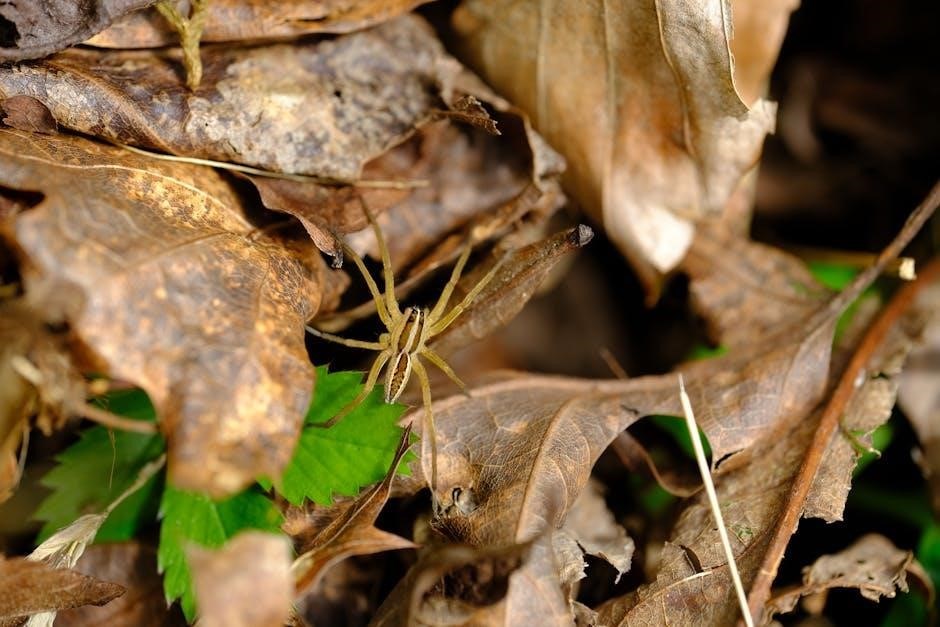
Types of Bear Hunting Methods in North Carolina
North Carolina offers still hunting, dog-assisted hunting, baiting, and stalk hunting. Each method requires skill and knowledge, ensuring a challenging and rewarding experience for hunters.
3.1 Still Hunting vs. Dog-Assisted Hunting
Still hunting involves silently tracking bears in their habitat, requiring patience and stealth. Dog-assisted hunting uses trained hounds to locate and chase bears, offering a dynamic, fast-paced experience. Both methods demand expertise, with guides often recommending dog-assisted hunts for first-timers due to higher success rates in North Carolina’s dense forests and swamplands.
3.2 Baiting and Stalk Hunting Techniques
Baiting involves placing food attractants like corn or honey at strategic locations to lure bears. Stalk hunting requires tracking and approaching bears undetected, relying on terrain knowledge and patience. Guides often combine these methods, using bait stations to locate bears before employing stealth techniques for a closer shot, ensuring a balanced and effective hunting strategy in North Carolina’s diverse habitats.
Regulations and Permits for Bear Hunting
Obtaining permits from the North Carolina Wildlife Resource Commission is essential. Seasonal restrictions and bag limits ensure sustainable hunting practices, with specific rules varying by region and sanctuary areas.
4.1 Obtaining the Necessary Hunting Permits
Hunters must obtain permits from the North Carolina Wildlife Resource Commission. A bear hunting permit is required, and hunters under 16 must complete a hunter education course. Applications can be submitted online or in person, with fees varying for residents and non-residents. Guides often assist clients in navigating the permit process to ensure compliance with state regulations and season requirements.
4.2 Seasonal Restrictions and Bag Limits
Bear hunting in North Carolina typically occurs from October to January, with specific dates varying by region. The bag limit is one bear per hunter per season, with restrictions on cubs and sows with young. Hunters must adhere to these rules to ensure sustainable bear populations. Guides often provide updates on seasonal changes and limits to ensure compliance with state wildlife regulations.
4.4 Understanding Bear Sanctuary Rules
Bear sanctuaries in North Carolina, like the Panthertown-Bonas Defeat area, are protected zones where hunting is restricted or prohibited to conserve bear populations. Hunters must avoid these areas unless permits are issued for selective hunting. Guides often help navigate these rules, ensuring compliance with wildlife conservation goals while respecting protected habitats. Understanding sanctuary boundaries is crucial for ethical and legal hunting practices in the state.

Role of Guides in North Carolina Bear Hunting
Guides enhance the hunting experience by providing expert knowledge, navigating regulations, and utilizing local terrain insights. They offer tailored services, ensuring hunters maximize their chances of success while adhering to ethical practices and legal standards.
5.1 Expert Knowledge of Terrain and Bear Behavior
Guides possess deep knowledge of North Carolina’s terrain, identifying prime habitats and movement patterns. Their expertise in bear behavior ensures hunters are positioned optimally, increasing success rates while respecting the animals’ natural habits and ethical hunting practices.
5.2 Services Offered by Professional Guides
Professional guides in North Carolina provide comprehensive services, including pre-hunt planning, access to private lands, and expert techniques like baiting or dog-assisted hunting. They offer equipment advice, transportation, and meal arrangements, ensuring a well-organized and successful hunting experience tailored to each client’s needs and skill level.
Gear and Equipment for Bear Hunting
Essential gear includes rifles like .308 Win or .30-06, sturdy clothing, and optics. Guides often recommend specific calibers and equipment based on hunting methods and terrain conditions.
6.1 Recommended Rifles and Calibers
For bear hunting in North Carolina, rifles chambered in .308 Win., .30-06, .338 Federal, .358 Win., and .35 Whelen are highly recommended. These calibers offer the perfect balance of accuracy and stopping power, ensuring ethical harvests. Guides suggest these cartridges for their reliability in various conditions, whether stalking or using bait, and provide expert advice for specific scenarios.
6.2 Essential Gear for a Successful Hunt
Besides a reliable rifle, essential gear includes sturdy tree stands, high-quality binoculars, and durable hunting apparel. Two-way radios, GPS devices, and first-aid kits are crucial for safety. Guides often recommend scent-blocking sprays, game calls, and attractants to increase success rates. Proper gear ensures hunters are prepared for North Carolina’s diverse terrain, from swamps to forests, and enhances the overall hunting experience.
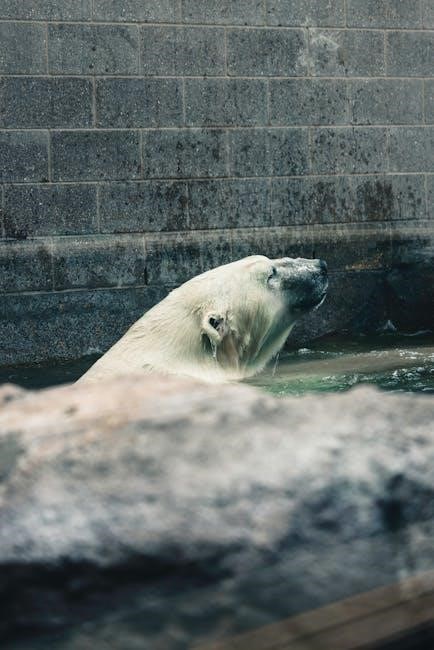
North Carolina Bear Hunting Records
North Carolina’s bear hunting records highlight notable harvests in state history, with detailed data maintained by wildlife agencies and accessible through databases like Boone and Crockett.
7.1 Notable Bear Harvests in State History
North Carolina’s bear hunting history features several record-breaking harvests, including a 700-pound bear in Hyde County, showcasing the state’s robust bear population and attracting hunters nationwide. These notable harvests highlight the effectiveness of guided hunts and traditional methods, contributing to the state’s reputation as a premier destination for black bear hunting.
7.2 How to Search for State Records
To search for North Carolina bear hunting records, visit the Boone and Crockett Club’s database or the North Carolina Wildlife Resource Commission’s website. These platforms provide detailed harvest data, including notable records and historical trends. Hunters and researchers can access specific information on bear sizes, locations, and hunting methods, making it easier to track and compare outstanding harvests across the state.
Public vs. Private Land for Bear Hunting
North Carolina offers both public and private land options for bear hunting. Public game lands provide accessibility but face challenges like overcrowding and stricter regulations. Private properties offer exclusivity, better habitat management, and often higher success rates, making them a preferred choice for guided hunts.
8.1 Challenges of Hunting on Public Game Lands
Public game lands in North Carolina offer accessible hunting opportunities but face challenges like overcrowding and limited access points. Hunters must contend with competition for prime spots, while strict regulations and seasonal restrictions add complexity. Additionally, the pressure on bear populations in shared areas can make success rates lower compared to private lands, requiring thorough planning and up-to-date knowledge of local rules.
8.2 Benefits of Hunting on Private Property
Private property offers exclusivity and reduced competition, increasing the likelihood of a successful hunt. Hunters benefit from controlled access and well-managed habitats, often with higher bear densities. Professional guides frequently have exclusive rights to private lands, providing expert knowledge and tailored strategies. This setup enhances the overall hunting experience and ensures adherence to ethical practices, making private property a coveted choice for bear hunters.
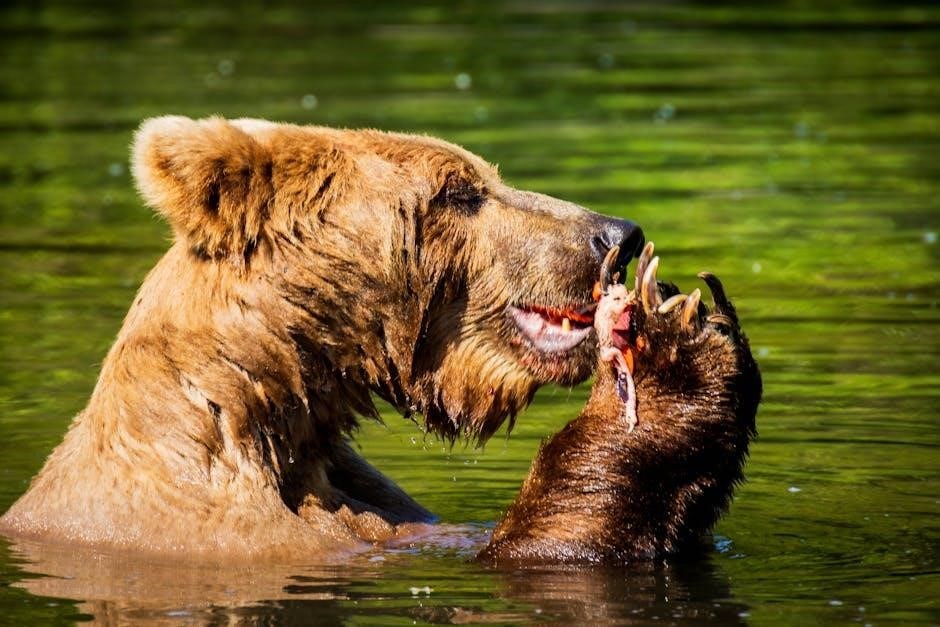
Cost of Bear Hunting in North Carolina
The cost of bear hunting in North Carolina varies, with guide services ranging from a few hundred to several thousand dollars, depending on the package and duration.
9.1 Guide Service Pricing and Packages
Guide service pricing in North Carolina varies, with packages ranging from $500 to $2,500 or more, depending on the duration, services, and exclusivity. Multi-day hunts often include lodging, meals, and gear. Some outfitters offer bear-deer combo hunts, while others specialize in dog-assisted or still hunting. Costs may also cover permits and field preparation, ensuring a well-organized experience for hunters of all skill levels.
9.2 Additional Expenses for Equipment and Accommodation
Beyond guide fees, hunters may incur costs for rifles, ammunition, and gear. Lodging in rural areas can range from $80 to $200 per night. Equipment rentals or purchases, such as rifles in .308 Win or .30-06 calibers, add to expenses. Hunters may also pay for food, transportation, and optional services like trophy preparation, increasing the overall cost of the hunting trip.
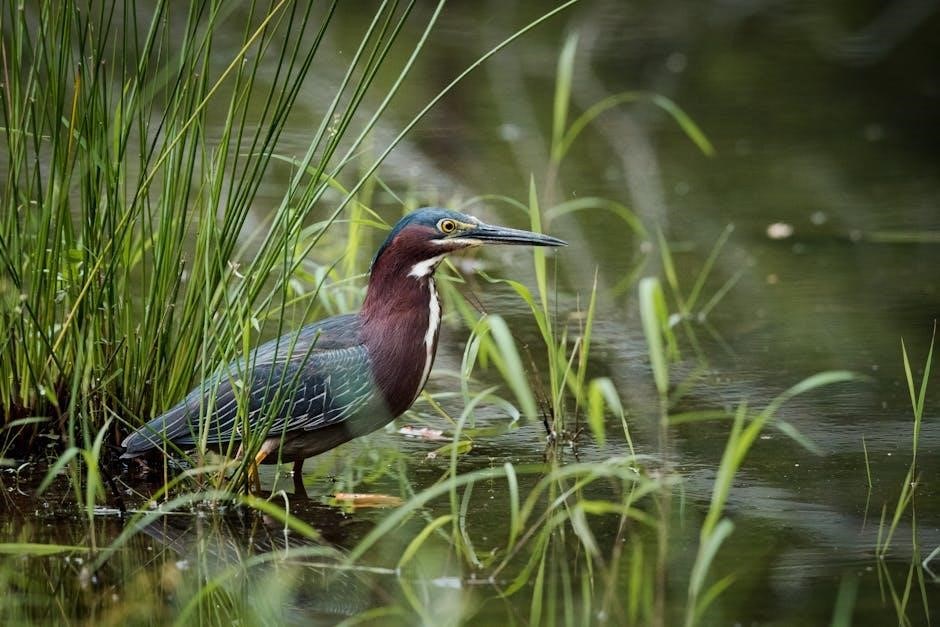
Ethical Considerations in Bear Hunting
Ethical hunting involves fair chase, respecting the animal, and minimizing environmental impact. Guides emphasize sustainable practices and ensure compliance with regulations to maintain healthy bear populations and ecosystems.
10.1 Fair Chase and Sportsmanship
Fair chase ensures bears have a reasonable chance of escape, emphasizing ethical hunting practices. Sportsmanship involves respect for the animal, land, and fellow hunters. Guides promote these values, teaching hunters to prioritize animal welfare and ecosystem balance. Ethical hunting fosters a deeper connection with nature and supports sustainable wildlife management, ensuring the sport’s integrity for future generations.
10.2 Environmental Impact of Hunting Practices
Responsible hunting practices minimize environmental disruption, preserving habitats and maintaining ecological balance. Guides often advocate for sustainable methods, such as proper waste disposal and avoiding sensitive areas. By adhering to regulations and ethical standards, hunters help protect North Carolina’s ecosystems, ensuring that bear populations and their habitats remain healthy for future generations to enjoy and steward responsibly.
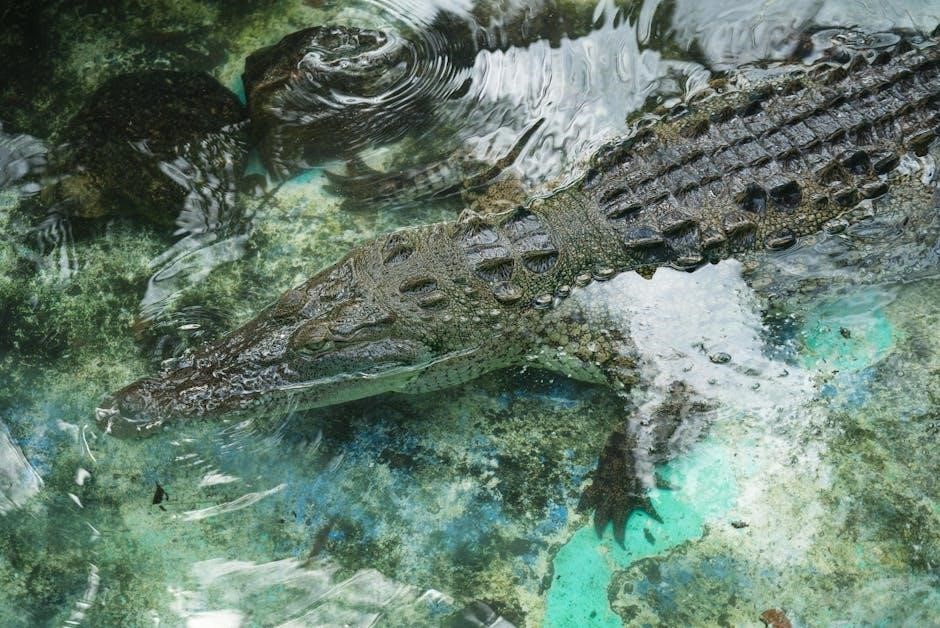
Planning Your Bear Hunting Trip
Planning involves choosing the right season, typically fall, and coordinating with guides who know the terrain and regulations, ensuring a well-organized and successful hunting experience.
11.1 Choosing the Right Time and Location
The best time for bear hunting in North Carolina is during the fall season, particularly in October and November, as bears are actively foraging before hibernation. Guides often recommend prime locations like Dare and Hyde Counties, known for their dense bear populations and ideal habitats.
These counties offer vast wilderness areas and swamps, providing ample opportunities for a successful hunt. Guides play a crucial role in selecting the optimal spots based on recent bear activity and seasonal patterns, ensuring hunters maximize their chances of success while adhering to local regulations.
11.2 Preparing for the Hunt with a Guide
Preparing for a bear hunt with a guide involves detailed consultations to discuss goals, terrain, and strategies. Guides provide insights into bear behavior and habitat, ensuring hunters are well-equipped with the right gear and knowledge. They also cover local regulations and ethical practices, fostering a safe and successful hunting experience tailored to individual needs and skill levels.
